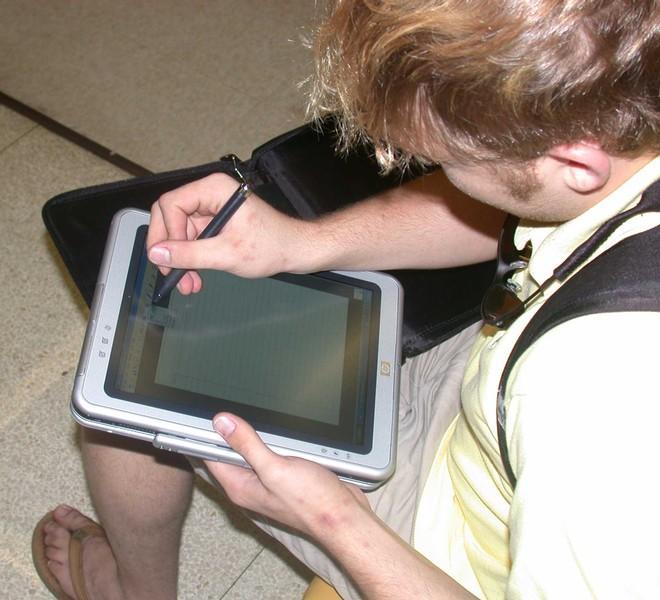Campus focus groups are taking a serious look into the benefitsof the mobile computing initiative, SG proposed in spring 2004.
Student Senate passed a resolution last February calling forresearch to possibly require all incoming freshmen to have mobilecomputing devices, such as laptops or hand-held computers.
SG set up focus groups to talk about concerns with implementingthis problem. Some concerns they found are:
– Professors must coordinate or design new lesson plans to userequired devices.
– Many professors will have to undergo training to operate newtechnology.
– Price of mobile devices.
– Physical room for computers and books on small desks.
– Installation of campus-wide wireless Internet access.
– Expense of a 24-hour repair and help center.
The focus groups were geared toward faculty representatives fromeach college, but also included students on college councils.
Hattaway said the main concern is finding how new technology canbe used in the classroom.
When former Senate Speaker Michael Busada proposed theresolution, he placed emphasis on University of North Carolina atChapel Hill’s success with their laptop requirement.
But Hattaway said the University first must find out how facultycan use mobile devices in the classroom, and if enough professorswill undergo the necessary operating training.
“Let’s not carbon copy UNC-Chapel Hill,” Hattaway said. “Let’sbranch out and do something better.”
Joel Williams, assistant director for the Office of ComputingServices, said before the University can look into a specific typeof mobile device, the faculty must identify the types ofapplications they need to enhance learning.
Then Computing Services can match the needs with the particulardevices, Williams said.
“This isn’t device driven — it’s application driven,” Williamssaid.
But selecting a device all majors can use is difficult.
For example, Williams said one survey of students conducted bythe Office of Computing Services said they would not be interestedin the mobile computing initiative unless tablet hand-heldcomputers were an option.
Tablet PCs allow users to write or make commands with a digitalpen, and open like a traditional laptop for typing with akeyboard.
The Office of Computing Services has lent SG a Hewlett Packardmodel for demonstration.
Hattaway said the tablet PCs would be useful for many students,especially landscape architecture students, who could use thecomputers for collecting data in outdoor landscape projects.
But justifying a mobile computer requirement for all majors maybe more difficult.
Director of First-year Writing Irvin Peckham said althoughhaving some sort of mobile computers would be beneficial forwriting classes, some literature professors may not use or wantthem in the classroom.
Peckham said some professors not accustomed to computers may notfeel it would better a literature class.
Despite the educational advantages that come with a mobiledevice, many students expressed concern about the additional priceon top of University tuition and fees.
Hattaway said with added features, the Hewlett Packard Tablet PCcosts around $2,300.
Randy McElroy, an engineering sophomore, said Hattaway broughtthe tablet PC to the employees at the Union Information Desk lastweekend.
“It’s a great computer,” McElroy said. “But the cost is the onlything I have against it.”
Regardless of the price, Hattaway said still many questionssurrounding the issue have not been answered.
Classroom infrastructure, such as desk size and setup is anothermajor concern.
Hattaway said campus-wide wireless Internet access and a 24-hourrepair center are expensive elements that would likely come alongwith the mobile device requirement.
Student Government Vice President Jenny Byrd said the initiativeis a long-term plan that will not be implemented as quickly somepeople had hoped.
Byrd said is it a complex issue that the University cannot jumpinto.
“Some schools are [requiring laptops], and it’s good for them,but we want to make sure it is good for us,” Byrd said. “That’swhat all these research and focus groups are all about.”
Initiating Conversation: Groups discuss mobile computing
June 24, 2004
Initiating Conversation




